House of the Dragon Season 2 Episode 3 Review: Rhaenyra-Alicent’s electrifying reunion marks the point of no return from the war
A rare show that keeps getting better, sharper and morally slipperier
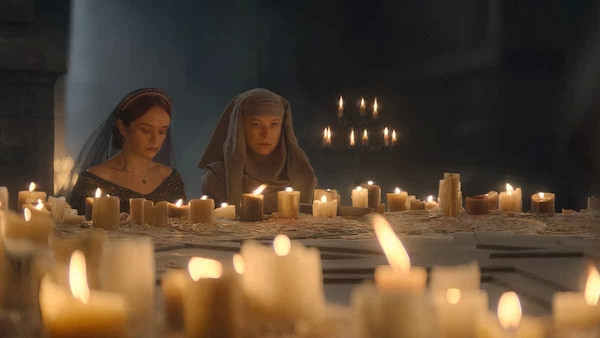
Last Updated: 12.31 PM, Jul 01, 2024
House of the Dragon has always been a show excellent at shrewdly and swiftly dislodging any fixities of a viewer’s natural inclination or leaning to empathise with its characters at any given moment. It lets you build affective associations with someone only to quickly reveal the deep fault lines streaking through your judgement. Wrapped within the outer frame narrative of two factions warring for a claim to the Iron Throne, it spans the feverish blood-rush of such a time, where fallibility of judgements takes precedence over the dire need of peace. This near-reflexive impulse towards vengeance is blinding and corrosive, one that makes its presence heavily felt in both the rival councils of Rhaenyra Targaryen (Emma D’Arcy) and Aegon Targaryen (Tom Glynn-Carney).
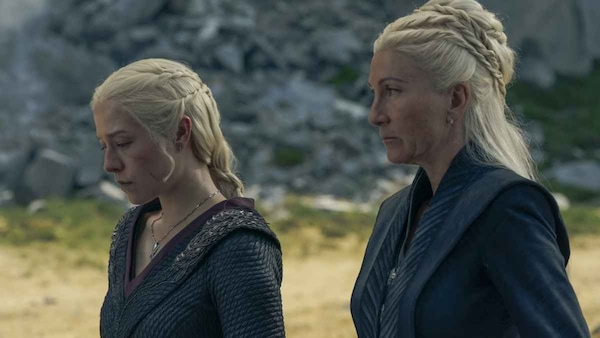
Opening in the shadow of the deaths of Ser Arryk and Ser Erryk, the third episode once again foregrounds the tussle between a “hotter blood” and a calm, even temper in determining the path to move forward. Rhaenys (Eve Best) continues to exert a check on Rhaenyra, with a quiet and firm insistence on showing restraint instead of caving in to what practically every other man in the council is calling for. As the “desire to kill and burn takes hold”, reason is forgotten. After all, Rhaenyra doesn’t need much looking back into history to gauge the consequences of what may happen if she allows herself to be incited and promptly dispatch dragons to do her bidding. It can only bring forth the worst domino effect, with payback from Aegon and Aemond’s dragons resulting in immediate, utter chaos and ruin that will spare none and leave ashes to tell the tale. Once war begins, if one assumes it hasn’t already, factors such as who precipitated it and how it transpires the way it does won’t even hold any water. All accusatory mud-slinging in triggering the war into free fall will have no currency whatsoever in the wake of devastation that is sure to follow.
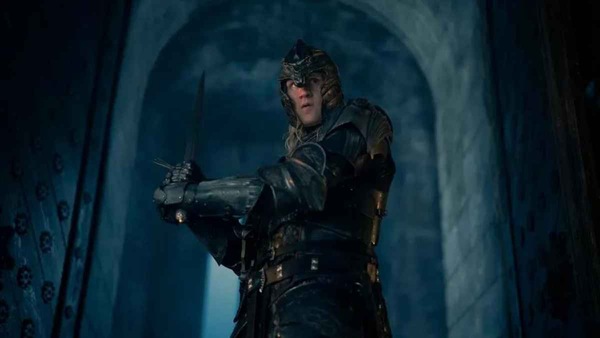
Meanwhile, with her father now unseated as the Hand of the King and no longer at King’s Landing, Alicent has to reckon with her own spiralling loss of control. Since Aegon, Criston and Aemond are all joined at the hip in a reckless bravado and swayed by oft-thoughtless, direct action, Alicent has little to fall back on in advancing her own conciliatory agendas. Directed by Geeta Vasant Patel and adapted by David Hancock, the episode sets into motion various parallel threads. Rhaenyra sends Rhaena Targaryen (Phoebe Campbell) to oversee the safe passage of her youngest sons to take lodging at the Vale and farther from harm. She also entrusts Rhaena with safeguarding a quartet of dragon eggs, underlining that if Dragonstone is penetrated, those eggs will be the sole symbol of the family’s future. The Brackens and the Blackwoods’ old feud gets re-ignited. Meanwhile, Daemon Targaryen (Matt Smith) makes his way to Harrenhal in the Riverlands to ensure the house’s loyalty to Rhaenyra. Expecting retaliation, his entry into the frightfully atmospheric castle is ultimately amusing as he’s deflated to find immediate subservience to his cause and the castle, reiterated as the largest in the Seven Kingdoms for newbies to the lore, mostly run-down.
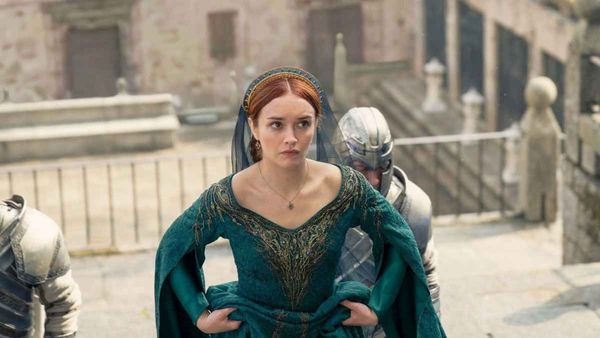
“Sin begets sin begets sin”, the lord at Harrenhal remarks. As he recounts the souring out of two houses, a thread is implicitly drawn to the in-fighting that threatens to destroy the Targaryens. The reason behind the war will ultimately be lost in time. But there are stray pockets of forgiveness or at least gestures towards it as exemplified in a spare exchange between Alicent and Helaena Targaryen (Phia Saban).
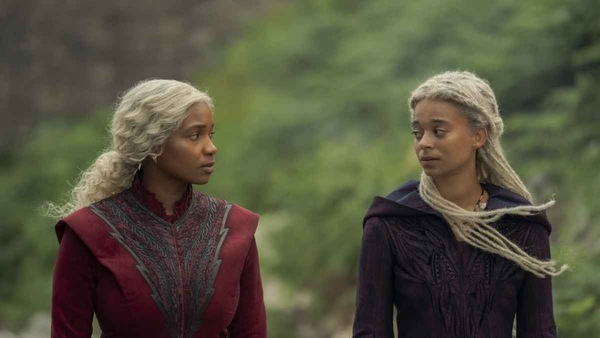
The episode culminates in the long-awaited reunion of Rhaenyra and Alicent. Seeking Mysaria’s counsel, Rhaenyra sneaks into the church in King’s Landing in the disguise of a nun. As acutely aware she is of the danger in her secret endeavour, she is also hopeful that she can still personally negotiate with Alicent a way towards peace. Believing herself to know her oldest childhood friend to a great measure, she cannot strike out her faith and trust in Alicent favouring a bloodless truce as well. In this standout scene, both D’Arcy and Cooke are superb at the rekindled spark between two old friends who are now opponents but neither has much fierce bitterness towards the other. Navigating a mesh of confusion, shared wounds, the desperation for more knowledge, a last-ditch-attempt at forging peace amidst a tightly precarious situation, the actors are tremendous together as their characters come to terms with a flash of information that makes clear to either in different ways the stakes of the battle and the truth of the claim to the throne. As one steels herself triumphantly and the other realises the weight of a mistake, the third episode clearly establishes there’s no turning back from the war.
Subscribe to our newsletter for top content, delivered fast.

